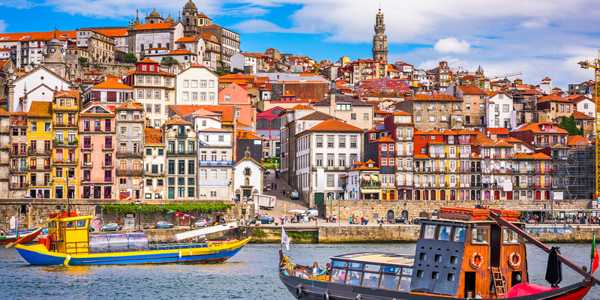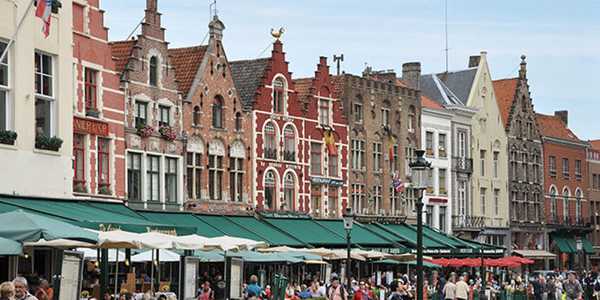Easiest EU Country to Get Citizenship
Discover the easiest EU countries to obtain citizenship, including Portugal and Malta. Learn about residency, language, and investment requirements for a smooth citizenship process.
In an increasingly interconnected world, obtaining citizenship in an EU country can profoundly impact an individual's life, offering access to an array of opportunities, rights, and protections. Understanding the pathways to citizenship is paramount, as these processes vary greatly in complexity and accessibility from one country to another.
Key Criteria for Easiest Citizenship

1. Residence Requirements: The duration of residency required for obtaining citizenship varies across EU countries and is a key consideration for applicants. Most EU nations mandate a minimum residency period of approximately five to ten years; however, countries like Malta and Portugal offer more expedited pathways through specific programs. Permanent residency status is often a prerequisite, indicating that applicants have established their lives within the country and complied with local laws throughout their residency.
2. Language Proficiency: Language skills are essential in demonstrating integration into a new society. Most EU countries require applicants to show proficiency in the local language, typically at a B1 level or higher. Such a requirement ensures that new citizens communicate effectively and engage with their communities, fostering social cohesion and a sense of belonging.
3. Financial Stability: Applicants must also prove their financial stability, including submitting bank statements, employment contracts, or proof of a steady income. This criterion verifies that newcomers can support themselves without relying on state benefits. Some countries may impose a specific income threshold or stable employment history to ensure economic self-sufficiency.
4. Cultural Integration: The integration process may involve attending cultural orientation courses or passing citizenship tests that pertain to the nation's history, values, and social norms. This step is vital as it promotes understanding and acceptance of the country's cultural fabric, thereby fostering unity and minimizing cultural disparities.
Profiles of Easiest Countries for Citizenship
1. Portugal: The Golden Visa Program
Portugal's Golden Visa program is a prominent pathway for non-EU citizens seeking residency and eventual citizenship. Launched in 2012, this initiative aims to attract foreign investments while allowing holders to reside in Portugal and travel within the Schengen Area. To qualify for the Golden Visa, applicants must meet specific investment criteria, such as purchasing real estate valued at a minimum of €500,000 or transferring €1 million in capital. Once granted, this visa allows for an initial residency period of one year, which can be renewed biannually. Applicants must maintain their investment and visit the country at least once every two years to uphold their residency status. After five years of holding a Golden Visa, individuals may apply for permanent residency or citizenship, provided they can demonstrate basic knowledge of the Portuguese language and have a clean criminal record. This program notably streamlines the path to citizenship for many international investors.
2. Spain: Fast-Tracking Citizenship for Latin Americans
Spain provides a unique advantage for Latin Americans seeking citizenship through residency. Given the historical ties between Spain and various Latin American countries, these individuals may accelerate their citizenship process, qualifying after just two years of legal residency. This fast-tracking mechanism facilitates quicker integration and access to EU citizenship rights, making it an appealing option for many Latin Americans aiming to establish a new life in Europe.
3. Italy: Citizenship by Descent (Jure Sanguinis)

Italy's citizenship by descent system, commonly called jure sanguinis, offers a pathway for individuals of Italian ancestry to obtain citizenship. This law allows descendants of Italian citizens, regardless of birthplace, to claim Italian citizenship by successfully proving their lineage. The process necessitates documentation tracing ancestry back to an Italian ancestor, emphasizing Italy's commitment to preserving its cultural heritage through its descendants. If eligible, applicants can reap all the benefits associated with EU citizenship, including the right to live and work across Europe.
4. Hungary: Investment Citizenship Program
Hungary's investment citizenship program is tailored for individuals seeking a rapid route to EU citizenship through financial commitment. Applicants can gain citizenship via significant investment, such as purchasing government bonds or contributing economically to the nation. This process is attractive due to its comparatively low residency requirements and the potential for achieving citizenship in a shorter timeframe than in other EU countries. Hungarian citizenship also opens doors to the EU market, presenting investors with expanded opportunities and benefits.
5. Belgium: Residency and Integration Requirements

In Belgium, individuals pursuing citizenship must navigate residency and integration requirements. Applicants must reside in Belgium for five years, during which they must demonstrate integration into society—typically by exhibiting language proficiency and an understanding of Belgian culture.
6. Malta: Fast-Track Citizenship by Investment
Malta provides a streamlined process for acquiring citizenship through investment and is known for its comparatively quick timeline and investor-friendly policies. Applicants are required to contribute to a national development fund, purchase property, and satisfy other investment conditions. This initiative is especially attractive for individuals seeking an expedited pathway to EU citizenship and various economic and travel advantages.
Comparative Analysis of the Countries
The ease and speed of obtaining citizenship differ significantly among EU countries. Nations such as Malta and Portugal stand out for their rapid processing times and flexible residency requirements, making them appealing options for prospective applicants. Malta's Investment Citizenship Program allows expedited citizenship in as little as 12 months, while Portugal's Golden Visa program enables citizenship after five years of minimal residency requirements. Conversely, countries such as Germany and France enforce stricter criteria, including language proficiency and integration tests, often resulting in prolonged waiting periods. In summary, for individuals seeking the most accessible routes to EU citizenship, Malta and Portugal emerge as leaders, offering efficient pathways with favorable conditions for applicants.



